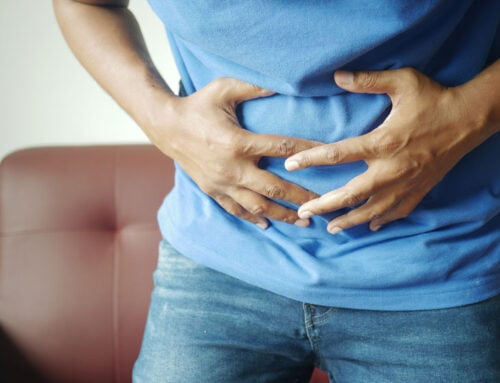What Is Clostridium Difficile?
Clostridium difficile (C. diff) is a bacterium that can cause severe gastrointestinal illnesses in humans. This is a common cause of antibiotic-associated diarrhea and can even be life-threatening. Each year, the condition causes more than 200,000 hospitalizations and around 12,000 deaths in the US alone. C. diff most commonly affects people taking antibiotics, but the condition can affect anyone. The aftermath of treating C. diff can leave patients exhausted and stressed. However, there are some ways to recharge.

Causes and risk factors
Antibiotics are the most common cause of C. diff infection. A common concern of antibiotics is the killing of good bacteria in the gut. Fewer good bacteria can allow C. diff to thrive. Certain antibiotics, like penicillin, quinolones, and macrolides, are more likely to cause C. diff. Some other risk factors include having severe health problems or taking multiple medications that weaken the immune system. C. diff can also spread through contact with infected persons or contaminated surfaces.
Symptoms of a C. diff infection
Dehydration is a symptom of the infection, causing patients to become tired and less alert. Other common symptoms include abdominal pain, nausea, vomiting, fever, loss of appetite, constipation, cramping, and diarrhea. Some patients experience shortness of breath and difficulty breathing in more serious infections. Some people may also develop severe complications such as colon inflammation and perforation of the intestines.
Turning to treatment
The recommended treatment for C. diff is an oral antibiotic. The doctor may also recommend intravenous fluids for dehydrated patients or those with more severe symptoms. In addition, some patients need medication to prevent severe diarrhea. Take the medication exactly as directed to avoid a drug-resistant strain of C. diff.
Stay hydrated
Staying hydrated is one of the best things patients can do with mild to moderate C. diff. Drinking lots of water will help patients recover from infections and even lessen symptoms. A high-fiber diet can also keep the bowels healthy, preventing issues in the digestive tract. A simple dietary change can help with hydration and relieve symptoms. For example, adding coconut water introduces electrolytes, potassium, and magnesium to help with dehydration.
Stay active
Exercise can help build the immune system, improve sleep, and increase energy throughout the day. The symptoms of C. diff can sometimes feel endless, but exercise can help during treatment. Some patients have low energy, but that should not stop movement. Start with a walk around the neighborhood, then slowly increase the distance. Patients with more energy can try jogging, spin bikes, or water aerobics. Find other like-minded people or C. diff patients to form an exercise group. Not only will exercise increase strength and mood, but studies show that moderate exercise increases gut microbiota.
An infection-free future
Most C. diff infections are mild and fleeting. In such cases, staying healthy and active is essential. These habits will help reduce symptoms and quickly get patients back to general activities. Try to get at least 30 minutes of physical activity every day. Along with a diet to help recharge the body, try meditation and massage therapy. If symptoms don’t seem to improve, talk to a doctor about additional treatment options.



